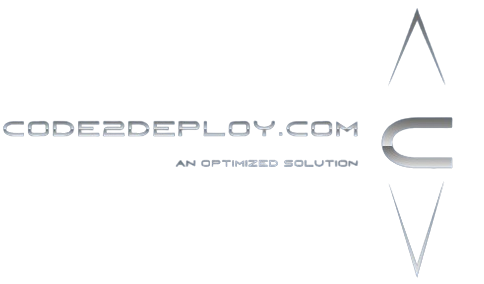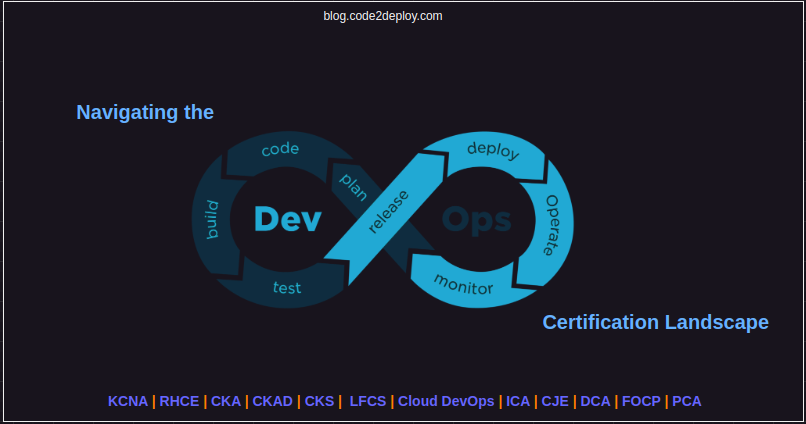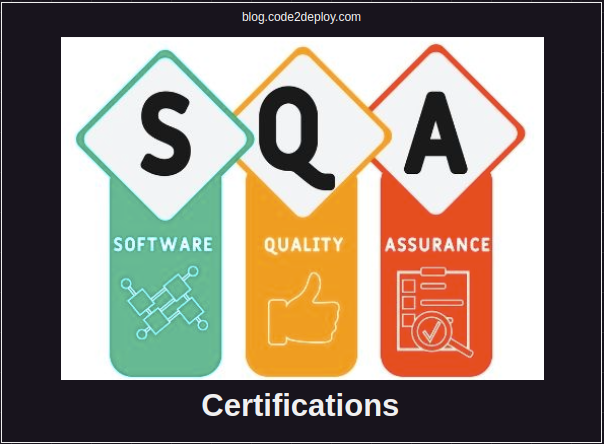Introduction:
In today’s fast-paced technological landscape, DevOps practices have become indispensable for organizations striving for efficiency, scalability, and reliability in their software delivery pipelines. DevOps engineers play a critical role in bridging the gap between development and operations teams, ensuring seamless collaboration and continuous integration and deployment.
One of the key ways to validate your expertise in DevOps is through certifications. In this blog, we’ll explore a curated list of certifications that cover various aspects of DevOps, including Kubernetes, cloud platforms, infrastructure as code, continuous integration/continuous deployment (CI/CD), and more. Let’s dive in!
1. Certified Kubernetes Administrator (CKA):
Benefits:
- Validates skills in managing Kubernetes clusters.
- Demonstrates proficiency in deploying, maintaining, and troubleshooting Kubernetes environments.
- Enhances career opportunities in organizations leveraging Kubernetes for container orchestration.
Exam Outline:
- Cluster Architecture, Installation & Configuration
- Workloads & Scheduling
- Services & Networking
- Storage
- Troubleshooting
- Security
2. Certified Kubernetes Application Developer (CKAD):
Benefits:
- Validates skills in designing, building, and deploying cloud-native applications using Kubernetes.
- Demonstrates proficiency in containerizing, configuring, and managing applications within Kubernetes clusters.
- Enhances employability for roles involving microservices and containerized application development.
Exam Outline:
- Core Concepts
- Configuration
- Multi-Container Pods
- Observability
- Pod Design
- Services & Networking
3. Certified Kubernetes Security Specialist (CKS):
Benefits:
- Validates skills in securing Kubernetes clusters and workloads.
- Demonstrates proficiency in implementing security best practices and controls within Kubernetes environments.
- Enhances credibility for roles involving Kubernetes cluster security administration.
Exam Outline:
- Cluster Setup
- Cluster Hardening
- System Hardening
- Minimize Microservice Vulnerabilities
- Supply Chain Security
- Monitoring, Logging, and Runtime Security
4. HashiCorp Certified Terraform Associate:
Benefits:
- Validates skills in using Terraform for infrastructure as code (IaC) provisioning.
- Demonstrates proficiency in defining and managing infrastructure using Terraform.
- Enhances employability for roles involving cloud infrastructure automation and management.
Exam Outline:
- Understand Infrastructure as Code (IaC) concepts
- Understand Terraform’s purpose and use cases
- Understand Terraform basics: syntax, operators, interpolation
- Use Terraform CLI (commands, configuration, and context)
- Interact with Terraform modules
- Navigate Terraform workflow (initialize, plan, apply, destroy)
5. Kubernetes and Cloud-Native Associate (KCNA):
Benefits:
- Validates knowledge of Kubernetes fundamentals and cloud-native concepts.
- Demonstrates understanding of containerization, orchestration, and microservices architecture.
- Enhances readiness for roles involving Kubernetes and cloud-native application development.
Exam Outline:
- Kubernetes Fundamentals
- Cloud-Native Concepts
- Containerization Basics
- Orchestration Basics
- Microservices Architecture
6. Linux Foundation Certified System Administrator (LFCS):
Benefits:
- Validates skills in Linux system administration.
- Demonstrates proficiency in managing Linux systems and services.
- Enhances career opportunities for roles involving Linux-based infrastructure management.
Exam Outline:
- Essential Commands
- Operation of Running Systems
- User and Group Management
- Networking
- Security
7. AWS Cloud & DevOps Certifications:
Benefits:
- AWS offers a range of certifications covering cloud and DevOps practices.
- Validates skills in designing, deploying, and managing AWS-based solutions.
- Enhances career prospects for roles involving AWS cloud architecture and DevOps practices.
Examples of AWS Certifications:
- AWS Certified Solutions Architect
- AWS Certified Developer
- AWS Certified SysOps Administrator
- AWS Certified DevOps Engineer
8. Azure Cloud & DevOps Certifications:
Benefits:
- Microsoft Azure provides certifications focusing on cloud and DevOps skills.
- Validates expertise in deploying, managing, and optimizing Azure-based solutions.
- Enhances employability for roles involving Azure cloud services and DevOps practices.
Examples of Azure Certifications:
- Microsoft Certified: Azure Administrator Associate
- Microsoft Certified: Azure Developer Associate
- Microsoft Certified: Azure DevOps Engineer Expert
9. Google Cloud & DevOps Certifications:
Benefits:
- Google Cloud offers certifications for cloud and DevOps professionals.
- Validates skills in designing, implementing, and managing Google Cloud Platform solutions.
- Enhances credibility for roles involving Google Cloud services and DevOps practices.
Examples of Google Cloud Certifications:
- Google Cloud Associate Cloud Engineer
- Google Cloud Professional DevOps Engineer
- Google Cloud Professional Cloud Architect
10. Istio Certified Associate (ICA):
Benefits:
- Validates skills in Istio, an open-source service mesh platform.
- Demonstrates proficiency in deploying, securing, and managing microservices with Istio.
- Enhances employability for roles involving Istio-based service mesh architecture.
Exam Outline:
- Istio Fundamentals
- Traffic Management
- Security
- Observability
- Service Mesh Operations
11. Certified Jenkins Engineer (CJE):
Benefits:
- Validates skills in Jenkins, a widely used automation server.
- Demonstrates proficiency in designing, implementing, and maintaining Jenkins pipelines.
- Enhances career opportunities for roles involving continuous integration and continuous delivery (CI/CD) with Jenkins.
Exam Outline:
- Jenkins Fundamentals
- Continuous Integration (CI)
- Continuous Deployment (CD)
- Pipeline as Code
- Plugin Development
12. Docker Certified Associate (DCA):
Benefits:
- Validates skills in Docker, a leading containerization platform.
- Demonstrates proficiency in containerization concepts, Docker installation, and management.
- Enhances credibility for roles involving containerized application development and deployment.
Exam Outline:
- Container Fundamentals
- Docker Installation & Configuration
- Docker Image Creation, Management & Registry
- Docker Networking
- Docker Orchestration & Swarm Mode
13. HashiCorp Certified: Vault Associate:
Benefits:
- Validates skills in Vault, a secrets management tool by HashiCorp.
- Demonstrates proficiency in deploying, configuring, and managing Vault clusters.
- Enhances employability for roles involving security and secrets management in cloud-native environments.
Exam Outline:
- Vault Concepts
- Vault Architecture
- Secure Secret Storage
- Dynamic Secrets
- Vault CLI
- Vault API
14. HashiCorp Certified: Vault Operations Professional:
Benefits:
- Validates advanced skills in operating and scaling Vault clusters.
- Demonstrates proficiency in disaster recovery, high availability, and performance tuning for Vault.
- Enhances credibility for roles involving large-scale secrets management deployments.
Exam Outline:
- Vault Operational Tasks
- Vault High Availability
- Vault Performance Tuning
- Vault Disaster Recovery
15. HashiCorp Certified: Consul Associate:
Benefits:
- Validates skills in Consul, a service networking platform by HashiCorp.
- Demonstrates proficiency in deploying, configuring, and securing Consul clusters.
- Enhances employability for roles involving service discovery, mesh networking, and observability.
Exam Outline:
- Consul Fundamentals
- Consul Architecture
- Consul Service Mesh
- Consul Security
- Consul Deployment & Operations
16. Red Hat Certified Engineer (RHCE) exam (Ansible Certification):
Benefits:
- Validates skills in Ansible, an open-source automation tool by Red Hat.
- Demonstrates proficiency in automating infrastructure provisioning, configuration management, and application deployment.
- Enhances career prospects for roles involving automation and orchestration with Ansible.
Exam Outline:
- Understand Core Components and Configuration Management
- Install and Configure Ansible Control Node
- Configure Ansible Managed Nodes
- Use Ansible for Automation
17. Red Hat Certified Specialist in OpenShift Administration (EX280):
Benefits:
- Validates skills in administering OpenShift, Red Hat’s enterprise Kubernetes platform.
- Demonstrates proficiency in deploying, configuring, and managing OpenShift clusters.
- Enhances employability for roles involving container orchestration and Kubernetes administration with OpenShift.
Exam Outline:
- Install OpenShift Container Platform
- Configure and Manage OpenShift Master and Node Hosts
- Secure OpenShift
- Control Access to OpenShift
- Monitor and Collect Metrics on OpenShift
18. FinOps Certified Practitioner (FOCP):
Benefits:
- Validates skills in FinOps, a discipline focused on optimizing cloud costs.
- Demonstrates proficiency in implementing cost management strategies in cloud environments.
- Enhances career opportunities for roles involving cloud financial management and optimization.
Exam Outline:
- Understanding Cloud Economics
- Cloud Financial Management Principles
- Cloud Financial Operations
- Cloud Financial Governance
19. Prometheus Certified Associate (PCA):
Benefits:
- Validates skills in Prometheus, an open-source monitoring and alerting toolkit.
- Demonstrates proficiency in deploying, configuring, and managing Prometheus for monitoring cloud-native applications.
- Enhances employability for roles involving observability and monitoring in Kubernetes environments.
Exam Outline:
- Prometheus Fundamentals
- Prometheus Query Language (PromQL)
- Monitoring Kubernetes with Prometheus
- Alerting and Notification with Prometheus
20. Become a Cloud DevOps Engineer: Udacity nano-degree certification:
Benefits:
- Validates skills in cloud-based DevOps practices through hands-on projects and real-world scenarios.
- Demonstrates proficiency in cloud infrastructure, CI/CD pipelines, and DevOps tools.
- Enhances career readiness for roles involving cloud DevOps engineering.
Program Outline:
- Cloud Foundations
- CI/CD Pipelines
- Cloud Infrastructure as Code
- Deployment and Monitoring
- DevOps Tools and Techniques
21. GitOps Certification with Argo:
Benefits:
- Validates skills in GitOps, a methodology for managing infrastructure and applications using Git and declarative definitions.
- Demonstrates proficiency in implementing GitOps workflows with ArgoCD, a popular GitOps tool.
- Enhances employability for roles involving GitOps practices and Kubernetes orchestration.
Exam Outline:
- GitOps Concepts and Principles
- ArgoCD Installation and Configuration
- GitOps Workflow with ArgoCD
- Continuous Deployment with GitOps
22. Certified Calico Operator: Level 1:
Benefits:
- Validates skills in Calico, an open-source networking and security solution for Kubernetes.
- Demonstrates proficiency in deploying and configuring Calico for network policy enforcement and pod security.
- Enhances credibility for roles involving Kubernetes networking and security.
Exam Outline:
- Calico Architecture and Components
- Deploying Calico in Kubernetes
- Network Policies with Calico
- Pod Security with Calico
23. Intermediate for Istio:
Benefits:
- Validates intermediate-level skills in Istio, an open-source service mesh platform.
- Demonstrates proficiency in advanced Istio features such as traffic routing, fault injection, and telemetry.
- Enhances readiness for roles involving Istio-based service mesh architecture and microservices observability.
Exam Outline:
- Advanced Traffic Management with Istio
- Fault Injection and Circuit Breaking
- Telemetry and Monitoring with Istio
- Security Policies with Istio
Conclusion:
These certifications cover a wide range of topics in the DevOps domain, including container orchestration, infrastructure as code, cloud platforms, continuous integration and deployment, monitoring, security, and more. By obtaining these certifications, you not only validate your skills and knowledge but also open doors to exciting career opportunities in the ever-evolving field of DevOps. Whether you’re just starting your DevOps journey or looking to advance your career, there’s a certification tailored to your interests and goals. So, choose wisely, embark on your learning journey, and unlock new possibilities in your DevOps career!


